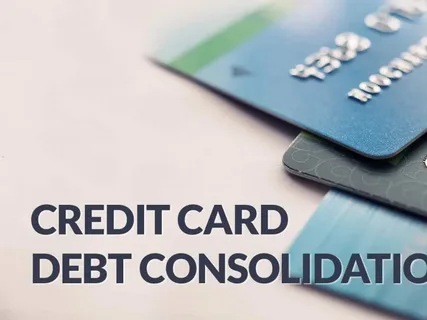Managing debt can feel like trying to juggle flaming torches while riding a unicycle—challenging and a little risky! If you’re struggling with multiple debts, you might want to consider credit consolidation. This comprehensive guide will walk you through everything you need to know about credit consolidation, making it as easy as pie (and much less messy).

What is Credit Consolidation?
Credit consolidation is the process of combining multiple debts into a single loan or payment plan. Think of it like gathering all your stray cats into one cozy basket—much easier to manage! This approach can simplify your finances and often result in lower interest rates.
Why Consider Credit Consolidation?
- Simplified Payments: Instead of juggling several due dates and amounts, you’ll only have one payment to worry about each month.
- Lower Interest Rates: Consolidating can help you secure a lower interest rate, which means you’ll pay less over time.
- Improved Credit Score: By reducing your credit utilization ratio and making consistent payments, your credit score may improve.
- Less Stress: Managing one payment is less overwhelming than keeping track of several.
If you want to dive deeper into the benefits of credit consolidation, check out Zekul.net for more insights!
Types of Credit Consolidation
There are a few different ways to consolidate your debts. Let’s break them down.
1. Debt Consolidation Loans
This is a popular option where you take out a new loan to pay off existing debts. Imagine this as a superhero swooping in to save the day! You’ll need a decent credit score to qualify for favorable terms, but it can be a great way to lower your interest rates.
2. Balance Transfer Credit Cards
These cards allow you to transfer high-interest credit card debt to a card with a lower interest rate, often with an introductory 0% APR. Just be careful—if you don’t pay off the balance before the promotional period ends, you could end up with higher interest rates than before!
3. Home Equity Loans
If you own a home, you might consider a home equity loan. This option allows you to borrow against your home’s equity, usually at lower interest rates. However, be cautious—defaulting on this loan could put your home at risk.
4. Debt Management Plans (DMPs)
DMPs are offered by credit counseling agencies. They negotiate with your creditors to lower your interest rates and create a manageable payment plan. It’s like having a financial coach in your corner!
For a deeper understanding of DMPs, check out Cixiq.net.

How to Consolidate Your Debts
Now that you know the types of credit consolidation, let’s look at how to get started.
Step 1: Assess Your Debts
Gather all your debts and write them down. Include the total amount owed, interest rates, and monthly payments. This will give you a clear picture of your financial landscape. It might look daunting—like a mountain of paperwork—but it’s essential!
Step 2: Research Your Options
Look into different consolidation methods and compare interest rates, terms, and fees. Don’t hesitate to shop around. Remember, finding the best deal is like finding the last piece of chocolate in a box—worth the effort!
Step 3: Check Your Credit Score
Your credit score will influence your consolidation options. Check your score for free through various online services. If it needs some polishing, consider improving it before applying for a consolidation loan.
Step 4: Apply for Your Chosen Method
Once you’ve found the right option, it’s time to apply! Be prepared to provide documentation, such as income and debt information.
Step 5: Create a Budget
After consolidating, create a budget to ensure you can make your new payment. This is crucial to avoid falling back into the debt spiral. You want to be the one holding the reins, not the other way around!
Common Questions About Credit Consolidation
Is Credit Consolidation Right for Everyone?
Not necessarily. It’s essential to evaluate your unique financial situation. If you have a stable income and can commit to a repayment plan, consolidation might be a good fit.
Will Credit Consolidation Hurt My Credit Score?
Initially, it might cause a slight dip in your score due to inquiries and changes in your credit utilization. However, if managed well, it could lead to improvements over time. For more on credit scores, visit Ucejat.net.
How Long Does the Consolidation Process Take?
The timeline can vary based on the method you choose. Some loans can be processed within a week, while others, like DMPs, may take longer to set up.
Can I Still Use My Credit Cards After Consolidation?
Yes, but it’s wise to avoid accumulating more debt. Think of it as a diet—you want to limit your indulgences while getting back on track!

Final Thoughts
Credit consolidation can be a powerful tool to regain control over your finances. By simplifying your payments and potentially lowering interest rates, you can pave the way toward financial freedom. Just remember, it’s essential to do your research and choose the option that best fits your needs.
So, whether you’re drowning in debt or just looking for a way to simplify your life, credit consolidation could be the lifebuoy you’ve been searching for!
For more detailed resources on managing your debt, feel free to explore Ijofed.net and Jhanak.sbs.
In conclusion, remember that navigating your financial journey doesn’t have to be a solo act. Seek advice, do your research, and take action. With the right approach, you can turn your financial chaos into a symphony of success!
Leave a Reply